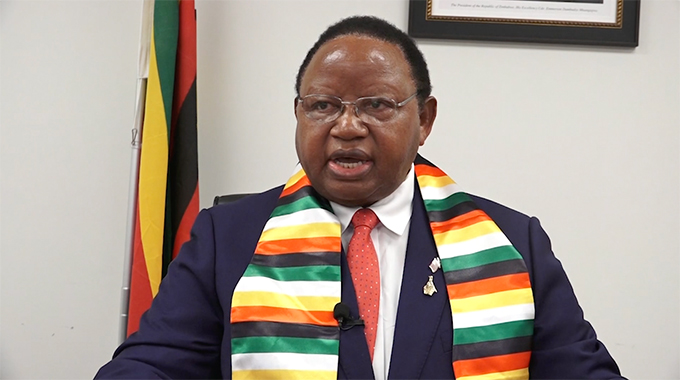Source: Govt demands evidence from Al Jazeera –Newsday Zimbabwe

PRESIDENTIAL spokesperson George Charamba says government has written to Qatari news network, Al Jazeera demanding evidence of gold smuggling and money laundering alleged in its investigative documentary which aired last month.
President Emmerson Mnangagwa and his wife Auxillia in particular, were placed at the centre of gold smuggling and money laundering activities by syndicates operating in southern Africa following a two-year investigation by Al Jazeera’s investigative unit.
The documentary, aired between March and April, centred on a secret recording of Mnangagwa’s ambassador-at-large Uebert Angel — born Uebert Mudzanire — and his associates promising to help undercover Al Jazeera journalists launder US$1,2 billion in dirty money.
Charamba shared a letter by the Ghanaian government on Twitter demanding an apology and a retraction after that country’s President Nana Addo Dankwa Akufo-Addo’s name was dragged into the Gold Mafia documentary.
“The Zimbabwe government has, in similar fashion, asked from Al Jazeera documents supporting its malicious allegations against persons and institutions here. To date, nothing has come from Al Jazeera,” Charamba posted on Twitter under the pseudonym Tinoedza Zvimwe.
Contacted for comment, Charamba said: “How do I trust to give you a story when you can’t read something which is in black and white?”
Ghana presidential secretary Nana Bediatuo Asante shared the letter on Twitter, which claimed that the documentary had made baseless claims against that country’s leader.
The west African nation demanded an apology within seven days.
In the documentary, self-proclaimed evangelist and Mnangagwa’s ambassador-at-large Angel was recorded by undercover journalists spilling the beans on the illicit dealings.
Angel claimed he could use his diplomatic cover to launder as much as US$1,2 billion in dirty money.
He also name-drops Mnangagwa, First Lady and Zimbabwe Miners Federation president Henrietta Rushwaya as the key figures in the dealings.
Government has said it would investigate allegations raised in the documentary.
“When we are ready to issue a comprehensive statement we will do that. Just keep on checking with us. When we are ready, we will definitely do so,” police spokesperson Assistant Commissioner Paul Nyathi told NewsDay yesterday.
Home Affairs minister Kazembe Kazembe also told NewsDay that government would issue a statement.
“I am going to issue a statement in that regard. That statement will be comprehensive, covering all that,” Kazembe said.
Asked if the statement was going to be issued anytime soon, Kazembe said: “No! No! No! You will be advised.”







